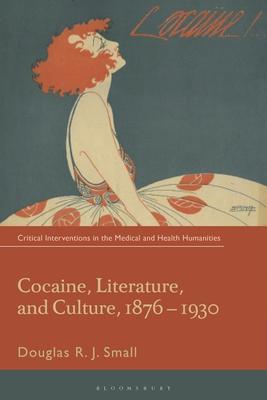The first significant study of cocaine in the literary and cultural imagination of the late 19th and early 20th centuries, this open access book offers an important exploration of the drug's symbolic and metaphorical associations in the decades prior to its criminalization.
Examining the paradoxical position of cocaine in this period by looking at its role as an icon of technology, modernity and idealised medical identity, alongside developing notions of habituation and dependence, this book reads texts such as the Sherlock Holmes stories, by Arthur Conan Doyle, as well as work by Arthur Machen, W.C Morrow and Aleister Crowley. The ebook editions of this book are available open access under a CC BY 4.0 licence on bloomsburycollections.com. Open access was funded by The Wellcome Trust.
The first significant study of cocaine in the literary and cultural imagination of the late 19th and early 20th centuries, this open access book offers an important exploration of the drug's symbolic and metaphorical associations in the decades prior to its criminalization.
Examining the paradoxical position of cocaine in this period by looking at its role as an icon of technology, modernity and idealised medical identity, alongside developing notions of habituation and dependence, this book reads texts such as the Sherlock Holmes stories, by Arthur Conan Doyle, as well as work by Arthur Machen, W.C Morrow and Aleister Crowley. The ebook editions of this book are available open access under a CC BY 4.0 licence on bloomsburycollections.com. Open access was funded by The Wellcome Trust.Hardcover
$127.78